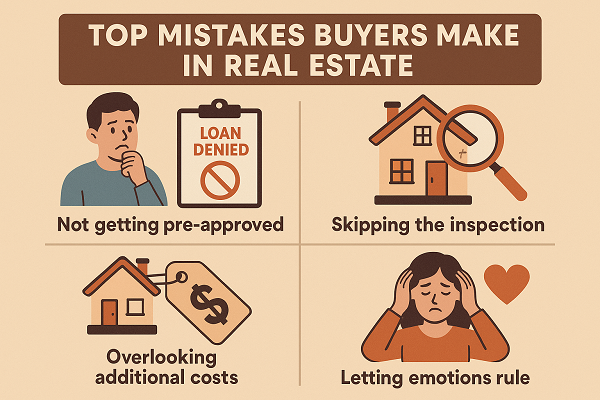Starting a business in the United States is an attractive prospect in 2025, thanks to a business-friendly environment, strong legal infrastructure, and a large consumer market. But before you open your doors to customers, it’s essential to understand what licenses and permits are required to operate legally. Whether you’re a domestic entrepreneur or a foreign investor, knowing the legal prerequisites for company registration in the USA is key to long-term success.
This comprehensive guide outlines the types of licenses you might need, the difference between federal and state requirements, and how they apply to various industries. If you’re considering a business setup in the USA, this guide will help you get started on the right legal footing.
1. Why Business Licenses Matter
Business licenses and permits ensure your operations comply with local, state, and federal regulations. They protect public safety, ensure fair business practices, and allow the government to track economic activity for taxation and regulation.
Failure to obtain the correct licenses can result in hefty fines, forced closures, or legal action, making it critical to understand your obligations upfront.
2. Types of Business Licenses in the USA
Business licenses vary based on industry, location, and company structure. Here’s a breakdown:
a) Federal Licenses and Permits
Not all businesses require federal licenses. However, if your operations fall under regulated industries, you must comply with federal agency regulations. These include:
- Alcohol, Tobacco, and Firearms – Bureau of Alcohol, Tobacco, Firearms and Explosives (ATF)
- Aviation – Federal Aviation Administration (FAA)
- Agriculture – U.S. Department of Agriculture (USDA)
- Transportation and Logistics – U.S. Department of Transportation (DOT)
- Broadcasting – Federal Communications Commission (FCC)
- Drug Manufacturing – Food and Drug Administration (FDA) and DEA
Before launching, confirm whether your business model triggers federal compliance requirements.
b) State Business Licenses
State licenses are more commonly required than federal ones. The specific license needed depends on:
- The nature of your business
- Your business location (state and sometimes county or city)
- Whether you sell goods or services
For example:
- A restaurant may need health permits, food service licenses, and liquor licenses.
- A real estate firm must get state real estate licenses.
Visit your state’s official licensing portal or Secretary of State website to check requirements for USA company registration.
c) Local Business Licenses
Local governments often require:
- Business Operation License: General permission to operate within the city or county.
- Zoning and Land Use Permits: Verifies your business operates in an area zoned for your activity.
- Signage Permits: For placing physical signs outside your location.
- Home Occupation Permits: For home-based businesses.
Also Read: Procedure to Set Up LLC in Florida Online
3. Steps to Legally Register and License Your Business
If you’re pursuing a business setup in the USA, follow these essential steps:
Step 1: Choose a Business Structure
Common structures include:
- Sole Proprietorship
- Partnership
- LLC (Limited Liability Company)
- C-Corp or S-Corp
An LLC is popular among both domestic and foreign entrepreneurs due to its flexibility and legal protection.
Step 2: Register Your Company
For company registration in the USA, register your business with the Secretary of State in your chosen state. This process typically includes:
- Choosing a unique business name
- Filing Articles of Organization or Incorporation
- Paying state filing fees
If you’re a non-resident, states like Delaware, Wyoming, and Nevada are popular due to favorable tax laws and easy filing processes.
Step 3: Obtain an EIN
Apply for an Employer Identification Number (EIN) from the IRS. It’s required for:
- Hiring employees
- Opening a business bank account
- Filing taxes
Even if you’re not based in the U.S., you’ll still need an EIN for usa company registration.
Step 4: Apply for the Required Licenses and Permits
Based on your business type and location, apply for:
- Federal licenses (if applicable)
- State business licenses
- Local permits
Use resources like SBA.gov or your state’s business portal to identify your exact requirements.
4. License Renewals and Ongoing Compliance
Most licenses and permits are not one-time tasks. They require periodic renewal, and some come with ongoing compliance obligations such as:
- Inspections
- Fees
- Reporting
Mark renewal dates and stay updated on changes in local laws to keep your business running smoothly.
5. Business License Costs in 2025
License costs vary widely:
- Federal licenses: Usually free, but may have associated compliance costs.
- State licenses: $50 to $500+, depending on the industry.
- Local permits: $25 to $300+
Additional fees may apply for renewals, inspections, or legal filings. Budget for these as part of your business setup USA expenses.
6. Tools and Resources for License Management
To streamline compliance, consider:
- Business license software like BizFilings, LegalZoom, or IncFile.
- Consulting with a business attorney familiar with your industry.
- Hiring a registered agent if you’re setting up a business from abroad.
These services can help monitor deadlines, handle filings, and ensure full compliance with U.S. laws.
Conclusion
In 2025, starting a business in the USA remains a strong opportunity—but only if you meet all legal requirements. Understanding and obtaining the correct federal, state, and local business licenses is an essential part of the process.
Whether you’re navigating company registration in USA as a citizen or international entrepreneur, make licensing a top priority. It not only protects your company from legal trouble but also builds trust with customers, vendors, and partners.
With careful planning and professional guidance, your USA company registration can be both compliant and competitive.
.Also Read: How to Set Up a Business in the Philippines as a Foreigner
FAQs
1. Do I need a business license in every state where I operate?
Yes, if you have physical operations or customers in multiple states, you may need to register and obtain licenses in each of those states.
2. Can I register a U.S. company if I’m not a U.S. citizen?
Absolutely. Foreign nationals can register businesses in the U.S., often choosing an LLC. However, you’ll still need an EIN and a U.S.-based registered agent.
3. What’s the difference between registering a business and getting a license?
Registration legally forms your business entity, while licenses and permits allow you to operate it lawfully in specific industries and locations.










Leave a Reply